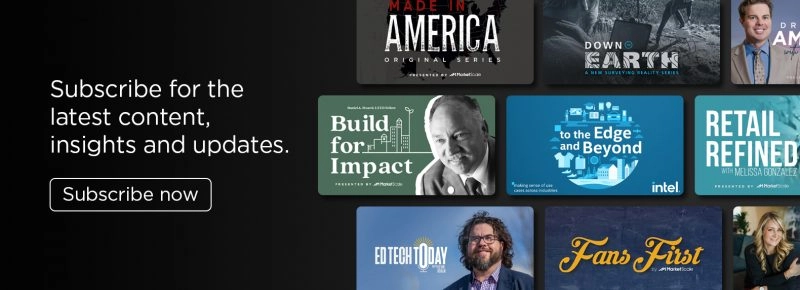Why Restaurants are Struggling to Hire Staff Amid Mass Reopenings
Restaurants are reopening, signaling the near end of the COVID pandemic, but many of them are struggling to hire new staff. Watch below as Bloomberg food editor Kate Krader discusses how New York City restaurants are ready to reopen fully on July 1, but may be hindered by these staffing challenges.
Host: What are some of the anecdotal stories you’re hearing about restaurants so desperate not to miss out on that revenue, but also not wanting to risk the reputation of opening and then they don’t have the staff to support the customers?
Krader: It is such a tricky time for restaurants right now because there’s all this opportunity. Rents are low, maybe historically low right now. And so there’s all this opportunity for them, for restaurateurs to to, like, scoop up places. At the same time, though, there is such a staff shortages. There is across many industries. But restaurants, you know, when especially for New York city, when everything shut down last year, so many people left and unemployment benefits continue to be very attractive for them. They don’t have to work. Restaurant work is hard if you’ve ever done it. It’s not you know, there are more appealing jobs out there for a lot of people. And then there are markets like the Hamptons that seem like they’re going to be big money this summer. So they’re like, “why will I stay and work in an empty midtown when I can go to the Hamptons and make a lot of money”?
Host: Interesting so it’s not I have also a lot of the staff of gone to the other areas. I mean, this migration south, as many have said, when rents were so high, people just decided they don’t want to come back to the big city.
Krader: I’m a real New Yorker. So I hate to I hate to have to admit it. But, yeah, you know, it’s not always easy to live in New York and prices are high. And the jobs weren’t there last year. And so a lot of people left and now they don’t have a lot of incentive to come back. And certainly there is a lot of reports of people going to the Hamptons. At the same time, we are working on a story about how the Hamptons is reporting a shortage in labor. So look out for that story.
Host: I think you rightly point out some of the unemployment benefits we push forward to jobs day on Friday as we think about this recovery. You do hear anecdotally from some small businesses that it is hard to compete with some of those unemployment benefits. You know, what are you hearing about? Are you making more money with some of those benefits? What is the incentive them to really get back to work?
Krader: It’s hard. It’s really hard to make a case to go back to work when benefits are good. People are making hundreds of dollars a week with unemployment. And then other industries. Amazon has been peeling off workers from the restaurant business. And we’re also hearing anecdotally about the cannabis industry, the green economy becoming an attractive place for restaurant workers. If you’re a chef and you can make edibles, there’s a hospitality aspect to it, too. So it’s I like to say restaurants are getting squeezed from a lot of different quarters in terms of labor.
Host: I want to end on a high note, though, New York City will reopen 100% on July 1st. Where are you most excited about seeing at full capacity going and sitting at the favorite bar stool that you always had.
Krader: I love that question. And you know what? Actually, Cuomo just announced that starting next week we can go to 75% in New York city, which is great. So I am going to say right now, Balthazar, which is a seminal New York restaurant, and Keith McNally, if you follow him on Instagram, has posted some gorgeous pictures of people dancing in the aisles. And he described the first day’s reopening there, like VE day, just the feeling of joy that you get. So I love that question.
*Bloomberg contributed to this content
—
Follow us on social media for the latest updates in B2B!
Twitter – @MarketScale
Facebook – facebook.com/marketscale
LinkedIn – linkedin.com/company/marketscale










